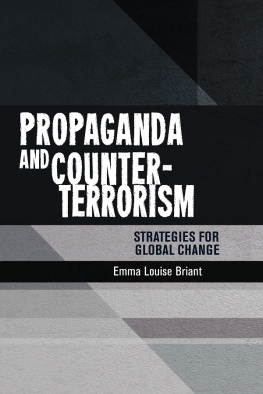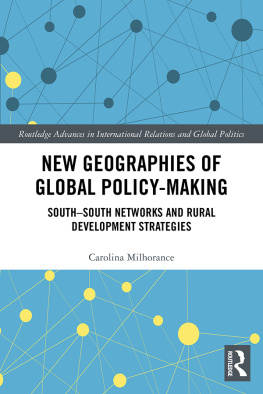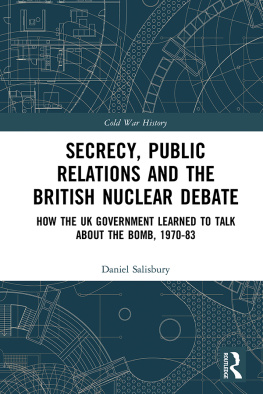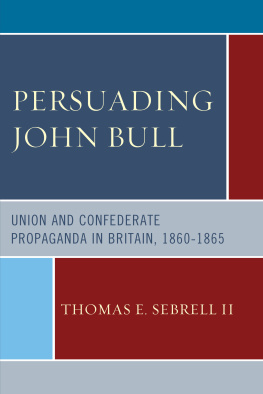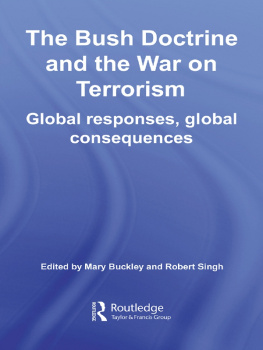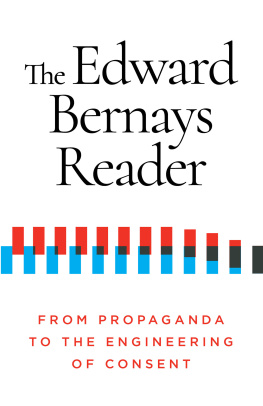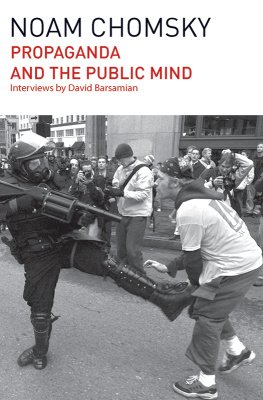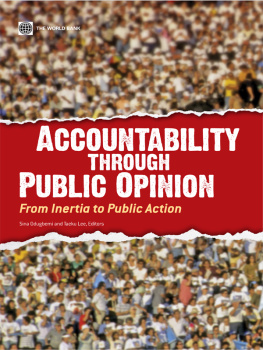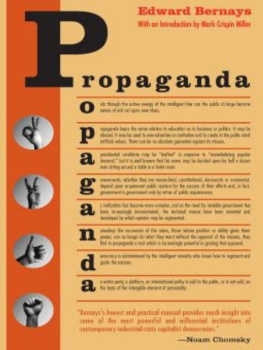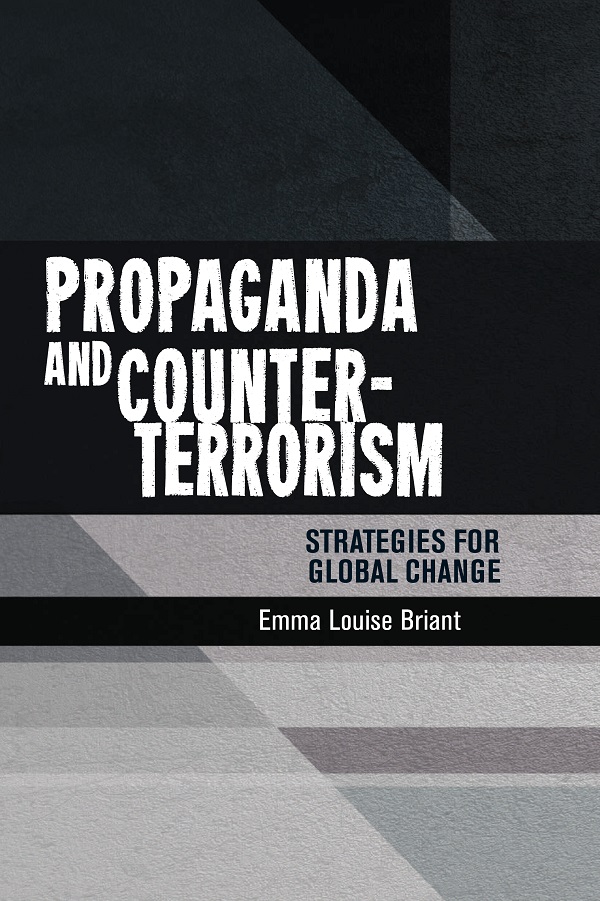Propaganda and counter-terrorism

Propaganda and counter-terrorism
Strategies for global change
Emma Louise Briant
Manchester University Press
Copyright Emma Louise Briant 2015
The right of Emma Louise Briant to be identified as the author of this work has been asserted by her in accordance with the Copyright, Designs and Patents Act 1988.
Published by Manchester University Press
Altrincham Street, Manchester M1 7JA, UK
www.manchesteruniversitypress.co.uk
British Library Cataloguing-in-Publication Data
A catalogue record for this book is available from the British Library
Library of Congress Cataloging-in-Publication Data applied for
ISBN 978 0 7190 9105 6 hardback
First published 2015
The publisher has no responsibility for the persistence or accuracy of URLs for any external or third-party internet websites referred to in this book, and does not guarantee that any content on such websites is, or will remain, accurate or appropriate.
Typeset
by Action Publishing Technology Ltd, Gloucester
Contents
Note: All images in were taken in Baghdad, 2003, and shown in a presentation by Ian Tunnicliffe in 2004.
I want to give my utmost gratitude to my doctoral supervisory team, Prof. Greg Philo and Prof. Sarah Oates for all their help, guidance and perpetually positive outlook even when I felt things a struggle. I consider being a member of Glasgow Media Group a great privilege, and I would like to extend my thanks to all those there who helped and supported me. Particular thanks go to Daniela Latina and Keirstan Pawson, the dedicated and meticulous research assistants who assisted me with my transcription, and Alex Cox and Giuliana Tiripelli, who were kind enough to do some proofreading. Thanks to Prof. John Eldridge who was always there with smile, a wise word and an excellent book. I am particularly indebted to Prof. Bridget Fowler and Greg, both of whom helped me secure funding for the research, as well as the ESRC for that funding. I wish to thank all my interviewees whose agreement, support and contributions formed the basis of the research, particularly Joel Harding and Angus Taverner for helping greatly with contacts. I would like to thank all the people who assisted me during my time in Washington, DC, particularly Verenda Smith Camire and John Stanton. I am also grateful to all my friends and family who gave me their patience and encouragement throughout. Lastly but importantly I would like to give my gratitude to Tony Mason and the excellent staff at Manchester University Press.
CIA | Central Intelligence Agency (US) |
CIC | Coalition Information Centre |
CENTCOM | United States Central Command |
CJPOTF | Combined Joint Psychological Operations Task Force |
COIN | Counter-insurgency |
CPA | Coalition Provisional Authority |
DIA | Defense Intelligence Agency (US) |
DOD | Department of Defense (US) |
DTIO | Director(ate) of Targeting and Information Operations (UK) |
FCO | Foreign & Commonwealth Office (UK) |
GICS | Government Information and Communications Service (UK) |
IIA | Interactive Internet Activities (US) |
IO | Information Operations |
IRD | Information Research Department (UK) |
MoD | Ministry of Defence (UK) |
MI5 | (Domestic) Security Service (UK) |
MI6/SIS | (International) Secret Intelligence Service (UK) |
MISO | Military Information Support Operations (US) |
NCO | Non-Commissioned Officer |
NCTC | National Counterterrorism Center (US) |
NDAA | National Defense Authorization Act |
NSA | National Security Advisor (US) |
NSC | National Security Council (US) |
OSI | Office of Strategic Influence (US) |
PA | Public Affairs |
PD | Public Diplomacy |
PR | Public Relations |
PSYOP(S) | Psychological Operations |
SIS/MI6 | (International) Secret Intelligence Service (UK) |
TAA | Target Audience Analysis |
USIA | United States Information Agency |
Following the September 11th 2001 terrorist attacks, the so-called psychological terrain was seen as the crucial counter-terrorism battleground where compliance might be created or conflict influenced in Afghanistan and Iraq. Much has been written about the hearts and minds campaigns of the governments of the United States and United Kingdom. Yet this book will illuminate an unseen story, that of the planning behind the propaganda, from the mouths of the key planners themselves. It traces their efforts to adapt propaganda systems that were seen as outdated within a rapidly changing global media environment that defied geographical boundaries and muddied traditional targeting. The book will argue that these counter-terrorism adaptations resulted in initiatives that gave propaganda wider reach and challenged existing structures, rules and practices. Change was not an uncomplicated process, however, and this book examines Anglo-American adaptation and explains how, why, and to what extent the countries were successful in adapting. Documenting changing ideas about propaganda in both countries during this transitional period, the book will point to the active mediation of propaganda strategies into the culture and practices of government departments and military organisations.
Where the operation and systems of propaganda are often discussed as if they were a systematic or unproblematic machine, this book demonstrates that the systems of this machine do not always function as governments hope and, like any large bureaucracy, they can struggle to adapt. They are of course formed of people, and propaganda planning can become a site of active struggle, dependent on evolving informal structures founded in relationships and culture. The Anglo-American relationship emerged in this struggle as one element that could sometimes be engaged in the process of propaganda adaptation and exchange. Ultimately the book will show how a structural development of the propaganda apparatus and gradual culture change, particularly in the US, brought a (more permissive) re-definition of legitimate propaganda function, developments that were seen as necessary to shift out old ideas and solidify the changes necessary for operational effectiveness.
The rest of this introduction will provide an entry point into the specialist area covered by the book including debates about security and ethics. It will begin with a short history of propaganda theories, including important definitions and concepts from academic perspectives as well as those dominant in contemporary defence policy. This section will be followed by a brief history of Anglo-American relations and propaganda use to provide valuable context to the contemporary relationship. This will lead into a discussion of how security and threats were defined and constructed for the War on Terror. There will finally be a brief note on method.

